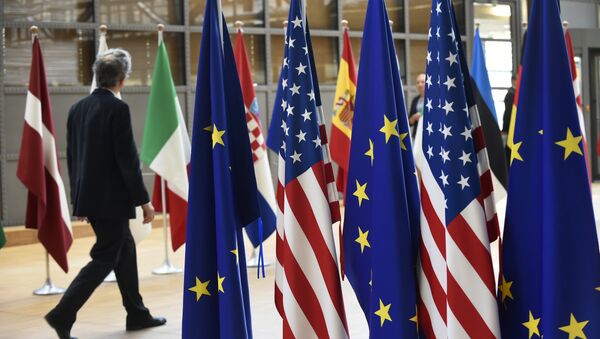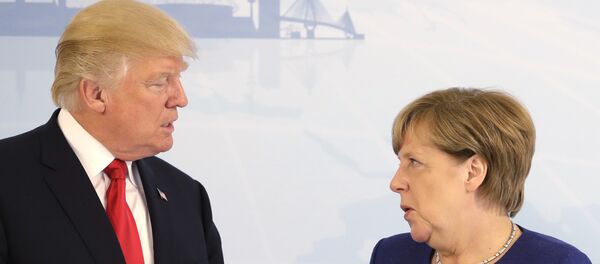The sanctions target Russia's defense, intelligence, mining, shipping and railway industries and restrict dealings with Russian banks and energy companies. The bill also stressed that the United States would continue to oppose the construction of the Nord Stream 2 natural gas pipeline.
According to Russian academic Alexander Domrin, "Europe definitely will not try to oppose this powerful and loutish US pressure (aimed both at Europe and Russia) simply because Europe does not have the power to do so."
Meanwhile, Yevgeny Primakov, a prominent Russian journalist and head of the Russian Humanitarian Mission, told Sputnik that it remains unclear whether the EU will continue to support the anti-Russian sanctions policy implemented by the US.
"The thing is, with all the problems it is currently facing – the economic issues, migrant problems, the manufacturing slump – Europe has few consolidating factors left. And the attitude towards Russia and the decades-old tradition of following in lockstep with the US are two such factors. So by challenging Washington, the EU would only further exacerbate the existing crisis," Primakov explained.
He also remarked that at this point it’s hard to predict the EU’s course of actions because both supporting the US anti-Russian policies and attempting to oppose Washington may put Europe at a disadvantage.
"They (the EU) are in a deadlock. If they challenge the US, it would destroy yet another consolidation factor for Europe. If they continue to adhere to the US policy, they would only drive themselves further into crisis; they would have to do something that puts them at a disadvantage. It’s not in Europe’s best interests to stop the construction of the Nord Stream 2 pipeline. They’re in a deadlock, so I don’t have a clear answer about how the situation will unfold," he said.
Primakov added that it is also unclear whether the EU would persevere in its current state, as a lot depends on the outcome of the elections in Germany and on the Brexit process, but noted that the union "is definitely going to change."


